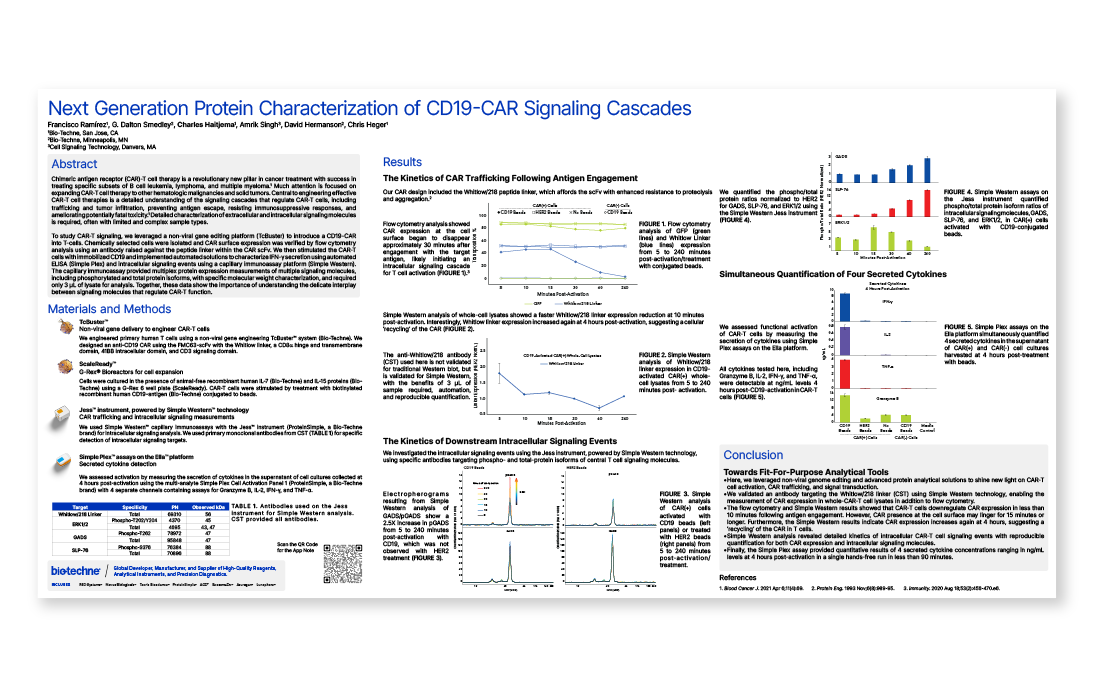Next Generation Protein Characterization of CD19-CAR Signaling Cascades
Scientific Meeting PostersChimeric antigen receptor (CAR)-T cell therapy is a revolutionary new pillar in cancer treatment with success in treating specific subsets of B cell leukemia, lymphoma, and multiple myeloma [1]. Much attention is focused on expanding CAR-T cell therapy to other hematologic malignancies and solid tumors. Central to engineering effective CAR-T cell therapies is a detailed understanding of the signaling cascades that regulate CAR-T cells, including trafficking and tumor infiltration, preventing antigen escape, resisting immunosuppressive responses, and ameliorating potentially fatal toxicity [1]. Detailed characterization of extracellular and intracellular signaling molecules is required, often with limited and complex sample types.
To study CAR-T signaling, we leveraged a non-viral gene editing platform (TcBuster™) to introduce a CD19-CAR into T-cells. Chemically selected cells were isolated and CAR surface expression was verified by flow cytometric analysis using an antibody raised against the peptide linker within the CAR scFv. We then stimulated the CAR-T cells with immobilized CD19 and implemented automated solutions to characterize IFN-γ secretion using automated ELISA (Simple Plex™) and intracellular signaling events using a capillary immunoassay platform (Simple Western™). The capillary immunoassay provided multiplex protein expression measurements of multiple signaling molecules, including phosphorylated and total protein isoforms, with specific molecular weight characterization, and required only 3 µL of lysate for analysis. Together, these data show the importance of understanding the delicate interplay between signaling molecules that regulate CAR-T function.
